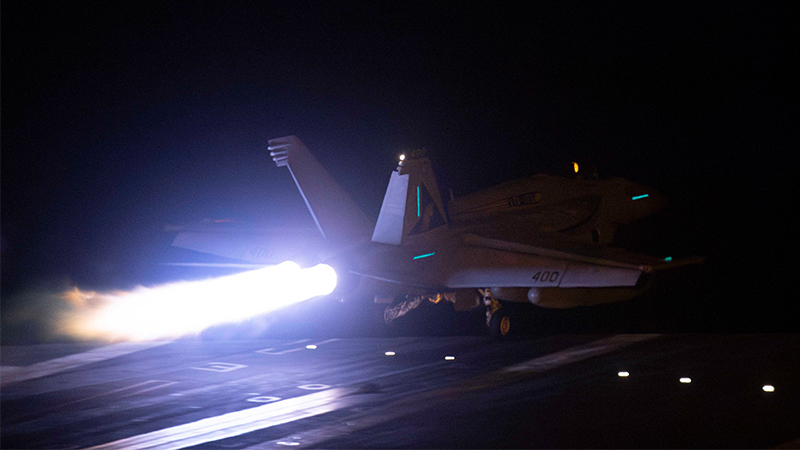American and British airstrikes on Houthi targets in Yemen could widen the conflict in the Middle East that’s been on edge since October 7 when the Hamas terror killed, raped and dismembered innocent Israelis.
The group’s plan for a wider war is playing out after their brutal attack on Israeli civilians. What followed has been what ignorant experts have called a ‘disproportional response’ from Israel that has killed over 20,000 Palestinians in the Gaza Strip.
Hamas, the Houthis and Hezbollah in Lebanon have a common thread running through their terror activities – Iran.
A regional conflagration suits the clerical regime in Tehran that has been in revolutionary mode since the late seventies when the Pehlavi regime was toppled in a coup.
The regime has since been trying to suck the West and other Middle East countries into a wider war. Hamas’s attack on Israel, the Israeli response, Hezbollah’s skirmishes with Israeli forces and the Houthi’s targeting of ships in the Red Sea all follow a pattern that cannot be ignored.
For months, the terror group that controls North Yemen with Iran’s blessings has stepped up attacks in the Red Sea area. Maritime supply lines have been disrupted, and despite warnings, the group has continued their attacks on merchant and military ships.
The US and UK strikes on 16 Houthi targets inside Yemen was the response the Houthis (and by extension Iran) had expected. The strikes received some regional support and wider Western backing, but there is also fear on how it will all end.
Perhaps this could be the beginning of a full-blown regional conflict that no one wants, but many had predicted would happen. Now that it is happening, there is trepidation in global capitals that the situation could spin out of control if it already hasn’t yet.
Here it is important to ask who started this conflict that makes World War 3 appear more imminent. Iran and its proxies bear the blame. There is no doubt about it. The Houthis are now expanding the conflict at Iran’s behest.
Diplomacy has failed as even a ceasefire in Gaza cannot be guaranteed. Everyone stands to lose with no one standing down and patience wearing thin in the West.
The situation remains tense, and the battle-hardened Houthis, who fended off a Saudi Arabia-led intervention for close to a decade with Iranian support, will.not be easy to dislodge.
This war, and we have no hesitation in calling it a war – that has seen several conflicts over the years – has come to head. It’s easy to spout the usual calls for peace, but it’s important to call out the chief plotter and supporter – before it reaches a point of no return. Iran is the stoker in chief.
The architects and leadership of Hamas must be handed over and punished for war crimes, and Israeli hostages released. That would, however, be a tough decision for Iran to make, and the regime would want an escape hatch to show their domestic audience and proxies that they are still in control of these evolving war-like situations. Would the West give it to them is the question.
Palestine, meanwhile, and the suffering of ordinary Palestinians, again appears to be lost in the fog of war, as diplomats attempt to quell one conflict after another without success.
In the end, Iran, the chief plotter, may also be the eventual loser, if it overplays its hand. Tehran has set the conflict ball rolling, but the ball is back in the regime’s court.


Leave a Reply